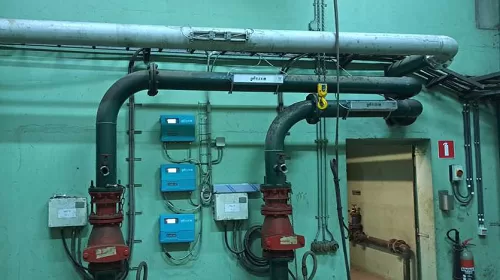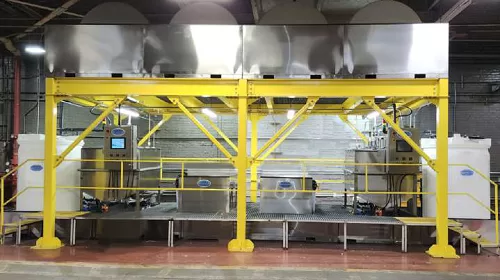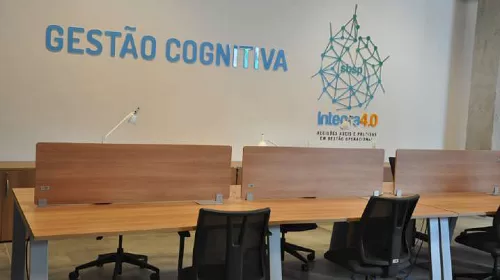By Dr. Debasri Mukherjee¹, Dr. M.N. Roy² and Er. Sohini Tarafdar³ ¹Senior Research Officer, SIGMA Foundation; ²President, SIGMA Foundation; ³Research Officer, SIGMA Foundation
Background
Chandai is a medium size village in Pakhanna Gram Panchayet of Barjora Block of Bankura district in West Bengal. It is situated about 5 km. away from the Pakhanna GP Office and is along the border of Hatashuria GP. There are around 350 households in the village with a population of about 1800 at present. The people of this village are mostly engaged in cultivation, cottage industry and cattle rearing. The area has hard rock acquirer, which has low capacity to hold water. Therefore, it is difficult to access water and the area remains drought-prone.
Problem Statement
Difficulty in accessing water: With the background mentioned above, the villagers of Chandai faced a huge water crisis. The community did not have access to adequate and safe drinking water sources. The only source of drinking water was two tube wells that were provided to the villagers by the Gram Panchayat. The number of households depending on each of these two tube wells was very high, which made access to water difficult and time consuming. The situation used to be worse during the summer months when the tube wells went dry. The water that was drawn during this season also very poor in quality. Difficulty in accessing water caused many other problems.
Sanitation status of the village also remained poor in spite of construction of Individual Household Latrines (IHHLs) to all the households under the Nirmal Bangla Prokolpo. However, when accessing even drinking water was difficult, the latrines had very limited use and many latrines remained unused. Fetching water for use in toilet made many family members practice open defecation. Even keeping the toilets clean was difficult in absence of water. In many households it was the women who used the toilet and that also added their burden in fetching water. Open defecation increased substantially because ponds of the village went dry in summer and getting water for toilet use became difficult.
Immediate outcome: The Jaladhi Jal Prakalpa launched by the PHED West Bengal
The Public Health Engineering Department or the PHED started the Jaladhi Jol Prakalpa in 2014 at Dejuri in Barjora and started supplying safe drinking water in some of the GPs of the Block. However, Pakhanna GP did not get any piped water supply till 2019. In 2019 the pipe laying work in Pakhanna GP started, but only a few street stand posts were provided to the people. In April 2021, the pipe line work was completed partially and the PHED started providing Functional Household Tap Connections (FHTCs) to each and every household in some of the Mouzas of the GP. The Chandai village received the FHTCs in May 2021. Now all the households are fully covered by FHTC and everybody in the village is getting safe drinking water at its doorstep regularly from the Dejuri Plant. Though the supply timing at present is 2 to 3 hours in the morning and 2 to 3 hours in the evening, but the villagers are very happy to get sufficient amount of safe drinking water within their households now and for this they are thankful to the Gram Panchayat and the Jal Jeevan Mission’s initiative.
The villagers are now using their toilet in their house because there is enough supply of water in the premises. Many have installed water tanks and store the required amount of water for use during any time. They have to fill it twice daily. Now, everyone in the village use toilet and the village has now become 100% Open Defecation Free. The villagers are very satisfied with the supply of safe drinking water and especially the women are very happy because they feel that their difficult days are gone and now they are concentrating more and more on their household work and paying more attention to their other responsibilities. Their physical suffering in fetching water has been totally removed. Many women are now engaged in different economic activities like weaving beautiful mats from the palm tree leaves and have also gained enough time to be engage in activities related to Self-Help Group.
Lessons Learnt and Way forward
Every household in the village now has piped water supply within their premises. Besides the households, all other institutions in the village also have piped water supply now. There are two primary schools and one High Madrasa in the village. They are now getting sufficient amount of water within the premises on a regular basis. The piped water supply in the High Madrasa and schools has improved the quality of life of students. Their attendance has improved as well as the problem of lack of toilet facilities or handwashing stations due to insufficient water supply has been addressed.
The Research Group of SIGMA Fundation also talked to the GP people of the Chandai village, Mrs. Hanufa Begam who stated,“All the villagers are getting benefits of supply of safe drinking water now. Earlier the women and adolescent girls used to go to the pond for bathing which was very much uncomfortable for them. Now every woman in the village is using bathroom and toilet within her house and feels safe and comfortable. Menstrul hygeine management has also improved”. An adolescent girl named Nargis Bano, a Class IX student at Chandai High Madrasa told, “ Now in our Madrasa all the toilets and bathrooms have enough water. We can use our toilets in the Madrasa anytime we require”.The PWSS has improved the quality of life of the rural community in actual sense and the story of Chandai is an appropriate example how the rural life can change with supply of piped water in their premises and fulfil the vision of Jal Jeevan Mission’s goal. The impact has been far greater on women and adolescent girls who have better access to education, productive time and also better hygiene.





